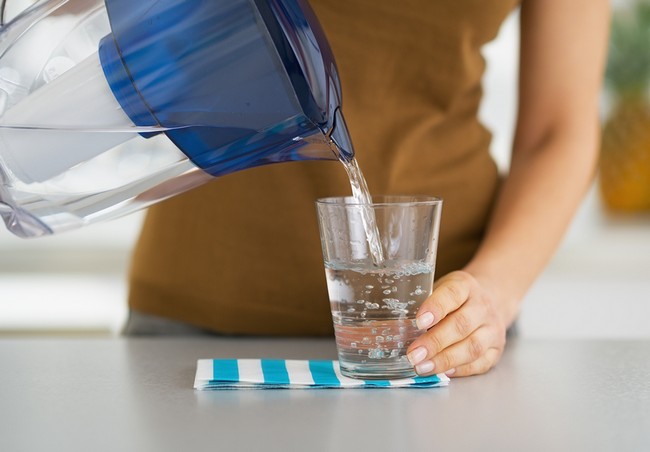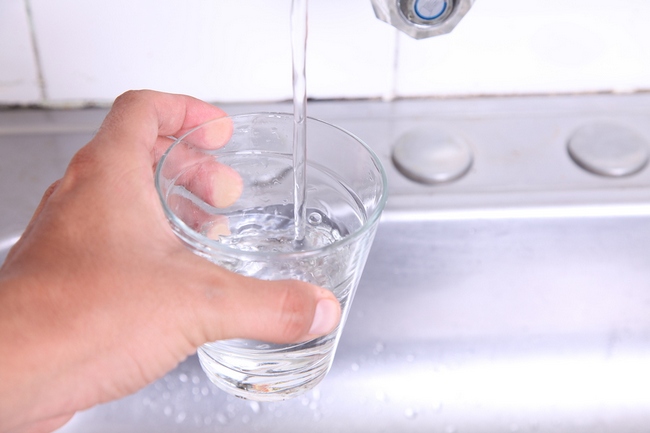- Make It Yourself Lavender Heart-Shaped Bath Bombs!
- 20 Things You Never Knew About “Down There”
- 12 Best Foods For Those Suffering From Arthritis Pain
- 12 Personal Hygiene Mistakes Almost Everyone Makes (Mom Never Told You About #4!)
- 15 Medicinal Plants And Herbs From The Cherokee People
- 12 Mind-Blowing Benefits Of Drinking Coconut Water During Pregnancy
- 12 Outstanding Winter Foods That Won’t Fatten You Up Like A Christmas Turkey
Which Water is the Best for Detox Programs?

Photo credit: bigstock
Earth might best be described as a water planet. More than 70 percent of the earth is covered in water. Lakes, streams, rivers, oceans, water seems to be almost everywhere! However, the sad truth is that most of our water is now polluted. Industries use waterways to dump their toxic waste; commercial farming leaches dangerous pollutants into our ground water. Jet fuel is found in well water and municipal water, along with mercury. Fracking dumps chemicals into groundwater every single day.
Water is life, friends. We can go weeks without eating but only days without water. Our blood is 83 percent water and all our other organs are made up of different percentages of water. It’s the ability of water to absorb and then deliver nutrients through our body that keeps the body alive. Every single chemical and biological process in the body must have water to function. Water not only moves nutrients to all the parts of the body, but it removes toxins and waste through urine and bowel movements. We are 60 percent water and drinking sufficient amounts of water is what keeps us alive.
What used to be a natural, healthy liquid is now so tainted that we must treat our water so that our dirty water is at least drinkable. But even treated water contains toxic metals such as lead and arsenic, and toxic chemicals such as antibiotics and fluoride. A recent study shows that in the state of Louisiana, municipal water includes dangerous brain eating amebas!
Many of us are looking for other water sources as a safer alternative but which water is best?
First, let’s take a look at our choices:
- Rain water
- Well water
- Spring water
- Filtered water
- Distilled water
- Reverse osmosis water
Continue to Page 2

Photo credit: bigstock
Rain Water, Spring Water, and Well Water
Although all of these sound like great options, the problem is the actual purity of these choices depends on the environment. If you collect rainwater, spring water, or well water, get it tested first. In fact, depending on where you live, you might want to think about getting this water tested at least once a year. Also, whatever you are using to collect this water, you should be certain the container is very, very clean. If tests show this water is pure, consider yourself blessed.
Filtered Water
Recent tests show that many of these water filters remove some impurities but not all. Check out online recommendations and test results. Almost none of these filtering systems remove fluoride. Do your research first before you decide to buy any filtration system to be sure you are getting the best possible filter.
SEE ALSO: 7 Shocking Things You Never Knew about Bottled Water
Reverse Osmosis Water
Reverse osmosis uses pressure to force water through smaller and smaller filters, which separates particles from the water itself. Some people state that these filters contribute to Candida. That has yet to be proven, but it is known that these filters need replacing every so often and many people neglect their systems once they are installed. Reverse osmosis water also do not remove some toxins, such as fluoride, from the water.
Continue to Page 3

Photo credit: bigstock
Distilled Water
Distilled water is the cleanest water anywhere. Yes, it is more acidic and devoid of minerals, but given a choice of polluted water or distilled water, the choice becomes clear. You can add one teaspoon of baking soda to a gallon of distilled water and you will have clean, alkalizing mineral water. Read more how to alkalize your water at home.
If you are doing a detox program, distilled water is the best choice. If you don’t have access to a trusted source of clean, pure water, then drinking distilled water is the answer. If you plan to do some colon cleansing (enemas) then distilled water is the only water you should consider.
To help your body flush toxins, a short term program using distilled water is a super effective means of detoxifying your body.
However, you should only drink distilled water for a short period of time. After that you will need to add baking soda or some other types of minerals to the water. Drinking only distilled water has some serious health risks.
Although it’s true that distilled water is the purest water, however it is an unnatural type of water. Distilled water is greedy, if you will, and it has the ability to grab onto toxic and harmful elements in the body and then these toxic items are removed with the water via urine. Unfortunately, distilled water also grabs ahold of essential minerals and other elements that your body needs. In just weeks, drinking only distilled water can lead to a serious mineral depletion that can lead to serious health complications such as:
- High blood pressure
- Osteoporosis
- Hypothyroidism
- Irregular heartbeat
- Coronary artery disease
- Osteoarthritis
This also applies to using distilled water for cooking. Distilled water will pull minerals such as calcium, magnesium, and potassium from your food, which means there are much fewer nutrients for you!
For the best health, your cooking and drinking water should be slightly alkaline. Use distilled water for short periods of time (such as a 10 day detox program) but after that, either adds minerals to your distilled water, or find another source of pure water.
Sources:
































